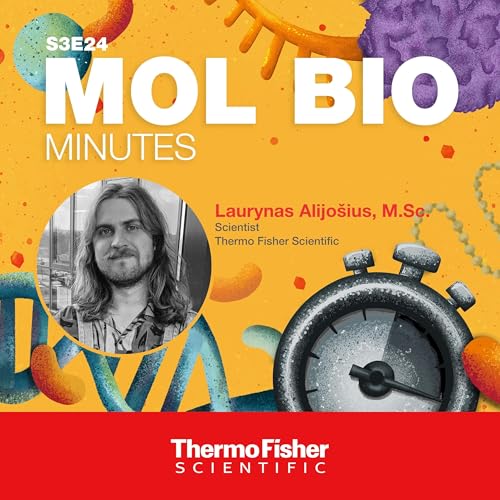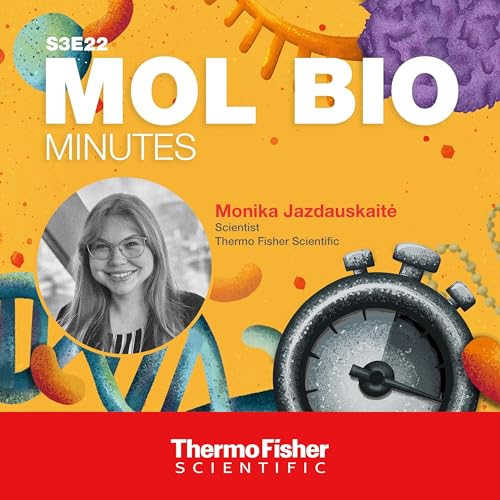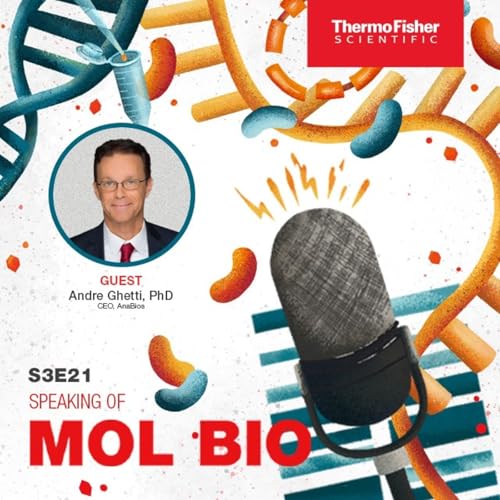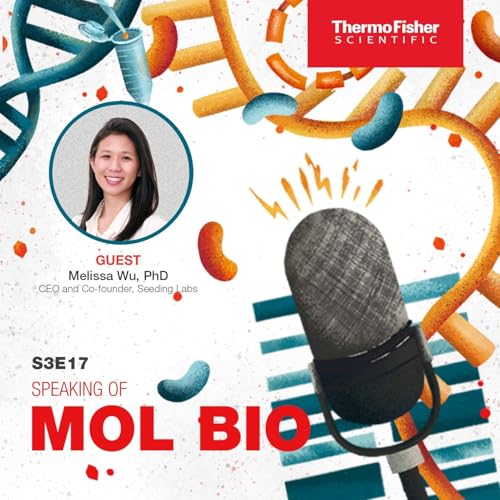In this Mol Bio Minutes episode, Dr. Will Barnes, a plant biologist turned senior sales training specialist at Thermo Fisher Scientific, reflects on his time at the bench and the molecular lessons learned along the way. Will dives deep into the difficulties of RNA work in plant systems—carbohydrate contamination, genomic DNA carryover, secondary structure—and how these hindered everything from cloning and expression analysis to sequencing and qPCR.
Through real-world anecdotes, he explains how high-quality reagents and systems helped him troubleshoot and resolve recurring issues, ultimately saving time and improving data reliability. He advocates for prioritizing upstream steps like RNA integrity and reverse transcription fidelity instead of chasing fixes at the end of the workflow.
Listeners will leave with a deeper appreciation for the critical role of sample prep in molecular biology workflows and why investing in better tools pays off in cleaner data, greater confidence, and fewer headaches. Will’s experience is a relatable reminder that smarter choices lead to better science.
Helpful resource links mentioned in this episode:
- Learn about molecular cloning workflows and Gateway cloning solutions
- Explore a variety of resources on reverse transcription
- TaqMan vs SYBR Chemistry for Real-Time PCR
- Using MagMAX kits for automated nucleic acid extraction
- Learn more about, or order,SuperScript IV VILO Master Mix
- Explore RNA/DNA quantification solutions, including Qubit and Nanodrop instruments
----------------------------------------------------------------------------------------------
Limited time promotional offer – Be one of the first 75 listeners to spend $500 and get 40% off all eligible reverse transcriptase, plastics, enzymes, and cloning reagents.
- Visit thermofisher.com/sombpromo for full details
- Enter promo code CAZDUA in the U.S.A.
- Enter promo code CZ7F19 in Canada
Subscribe to get future episodes as they drop and if you like what you’re hearing we hope you’ll share a review or recommend the series to a colleague.
Visit the Invitrogen School of Molecular Biology to access helpful molecular biology resources and educational content, and please share this resource with anyone you know working in molecular biology.
For Research Use Only. Not for use in diagnostic procedures.
 2025/12/2416 分
2025/12/2416 分 34 分
34 分 12 分
12 分 35 分
35 分 15 分
15 分 33 分
33 分 20 分
20 分 2025/09/1037 分
2025/09/1037 分
